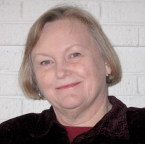Authored by Stephanie Ferrera
At the Annual Midwest Symposium on Bowen Theory, May 2 -3, 2014, Dr. Kerr presented on his longstanding interest in the relationship between health, illness, and the family emotional system, and has done extensive research with cancer patients and their families. In this presentation, he gave an overview of the systems thinking that researchers are bringing to the study of cancer, and showed how this fits with the systems thinking in Bowen theory.
Dr. Kerr began his presentation with the idea of an “open relationship,” defined by Murray Bowen as one in which each partner can communicate innermost thoughts and feelings to the other without fear of hurting the other. Kerr notes that such a relationship is ideal; it is health promoting. However, such a relationship depends on the emotional maturity of partners, their ability to manage their own anxiety and feelings, not intruding, demanding, caving, or avoiding others. With increasing chronic anxiety, family relationships move toward greater reactivity and less openness. Kerr refers to this process as emotional regression: “If chronic anxiety escalates in a relationship system, the system becomes dominated by less thoughtful and more reactive ways of interacting that are older in an evolutionary sense than the advanced complex behaviors of a well-functioning relationship system.”
Dr. Kerr traced the multigenerational process that generates variation in emotional functioning among members of a family, and that leads to some members becoming vulnerable to absorbing a disproportionate amount of anxiety. He concluded: “Chronic anxiety can disturb that person’s homeostasis which manifests as a disturbance of organ or tissue functioning somewhere in the body.”
He went on to cite a number of scientists who are looking at cancer at the larger organismic level and who are seeing regression as a disturbance “at the cellular relationship level that renders some tumors highly aggressive.” One cancer researcher, Dr. Minna Bissell, makes this striking point: “Cells keep each other in line. They receive many cues from the environment about how to behave. Cancer is not a problem of growth, as the entire field believes. It’s a matter of context. Place a cancer cell in a normal environment and it becomes normal; place a normal cell in a cancer environment and it becomes cancerous.” One cannot miss the parallel with family emotional process.
Another scientist whose ideas on cancer fit with the regression theory is Dr. Paul Davies. He sees the mechanisms of cancer as deep-rooted in evolutionary history. Cancer cells are our own body’s cells, not foreign viruses or bacteria. Cancer is the result of the proliferation of misregulated cells.
While covering a wide range of complex data and ideas, Dr. Kerr “connected the dots” in a clear and highly organized way. He followed his presentation with a clinical videotape of a family that was remarkably astute in observing their own emotional process over many years, a story that included a diagnosis of cancer in one member. Dr. Kerr’s presentation elicited great interest and thoughtful comment from the Symposium guest scientist, Dr. Charles Raison.
Stephanie Ferrera




Leave a Reply